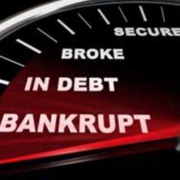Difference Between a Chapter 7 and a Chapter 13
Difference Between a Chapter 7 and a Chapter 13 Bankruptcy
Chapter 7 is a liquidation bankruptcy, it has two primary functions: reviewing your assets to see if you have non-exempt assets that can be turned into cash the trustee can liquidate to pay back some of your debts, while attempting to eliminate your remaining debts. Creditors will receive notice of the automatic stay upon your filing, which means they must stop contacting you about unpaid bills and seize any legal actions. Unsecured debts, like medical bills and credit card balances, can usually be wiped out in Chapter 7 bankruptcy. You must pass a means test in order to qualify for this bankruptcy.
Chapter 13 is a reorganization bankruptcy, your attorney creates a detailed plan for you to pay back creditors while prioritizing your debts and forcing lower payoff amounts. Unsecured debts like credit cards and medical bill receive cents on the dollar and they the balances are discharged. In Chapter 13, you will pay only disposable income, or the amount above your living expenses, toward unsecured debts for a period of three to five years. It also gives you a chance to catch up on secured debts like mortgages or car loans and work on regaining your good standing with creditors. You must have regular income to qualify.
Carol A. Lawson, Esq., 28870 U.S. Hwy 19 #300, Hodusa Towers, Clearwater, FL 33761
Phone: (727) 410-2705; email: [email protected]
Clearwater Bankruptcy Attorney, Clearwater Bankruptcy Lawyer, Clearwater Bankruptcy, Clearwater Estate Planning Attorney, Pinellas Estate Planning Attorney, Pinellas Probate Attorney #FileLocallyDontOverpay #ClearwaterBankruptcy #ClearwaterBankruptcyAttorney #ClearwaterEstatePlanning #ClearwaterProbate









